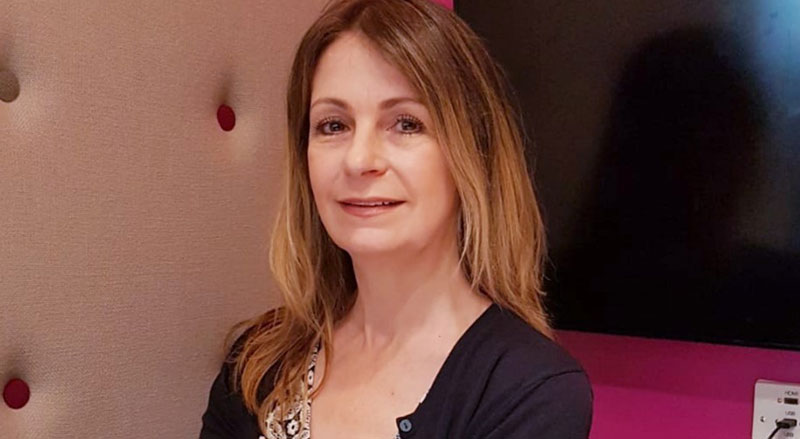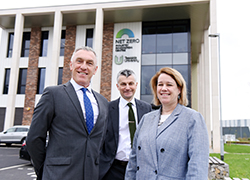The government needs to give back to carers – says university researcher
New research by a Teesside University graduate has revealed that carers in the UK describe a ‘dark place’, a ‘black hole’ and ‘feeling trapped’ while caring for their loved ones.

Dr Julia Harrison, who studied the Doctorate in Counselling Psychology, conducted research into the lives of six carers in the region and their own subjective experiences of mental wellbeing.
The results exposed the hidden plight of caregivers and showed a significant theme of isolation among participants. However, while Dr Harrison acknowledges that caring can be stressful and have negative effects on mental wellbeing, carers also experience positive benefits, such as a sense of meaning and purpose.
'Through my research I gained a big picture of real, rich experience. It was the case that there was a high level of stress, burnout and depression among carers, but what also came out was a huge meaningfulness,' explained Dr Harrison.
'All of the carers were glad that they did it and spent time caring for their loved ones. What could be more rewarding than caring for someone you love? But it is about being a carer, and also caring for yourself.'
Dr Harrison, who works in occupational health at Northumbria Healthcare NHS Foundation Trust, argues that carers need more support from employers and government funding to be able to find a healthy balance in their own lives.
One participant in the study was a professional with an excellent wage, but she had to leave her job to care for a loved one. When she became a carer, she had a small income which she says had a huge impact on her identity and sense of self-worth.
Elsewhere, Lynne*, who gave up her healthcare profession to care for a relative, found it difficult to come to terms with losing the career she had worked hard for.
Lynne said: 'I had a fantastic career. I lost all that – I gave all that up – which I’d worked hard for. I absolutely loved my job so that was a big loss, and it took me a lot of years to come to terms with that.'
Another participant said she found it difficult to get back into work after being a carer and tried several times with no success. Dr Harrison says that carers need to feel valued and should be supported psychologically and financially so that they can keep their jobs too.
I would suggest that carers should have a legal right to work flexibly, rather than just a legal right to request it.
She added: 'At the moment, carers have the right to request flexible working from their employers, but this doesn’t mean their requests will be granted. Employers then have to look at the needs of the business, and the carer is often subjected to months of process. I would suggest that carers should have a legal right to work flexibly, rather than just a legal right to request it.'
The Office for National Statistics has estimated that by 2039 the carer population in the UK will have reached a staggering 10 million, and Dr Harrison is now calling on the policy makers in the UK to take action.
Dr Harrison said: 'It’s estimated that carers save UK taxpayers £132bn per year with each carer saving £20,000 a year. But many have had to give up work to care for their loved ones. If carers were supported better, the public purse could save a lot of money.
'There is a hidden army of carers in the UK, many who don’t recognise themselves as being carers as they identify themselves as wives or husbands taking care of their partner. It is about time the government recognised the savings carers make and give them something back – with the right support, anything is possible.'
Dr Harrison’s research supervisor, Dr Daisy Best, said: 'This is a very impactful piece of research that highlights both the challenges and difficulties faced by carers.
'This often ‘invisible’ group of people require more support to ensure that their own mental and physical health is not negatively impacted by providing the crucial care that is required. As funding for services reduces, we are likely to see more people in the future who occupy a caring role.'
*Participant pseudonyms have been used to protect their identity.
 International partnership signed with prestigious American
...
International partnership signed with prestigious American
... Teesside University academics join prestigious network of
...
Teesside University academics join prestigious network of
... Curatorial studies culminating with international art
...
Curatorial studies culminating with international art
...